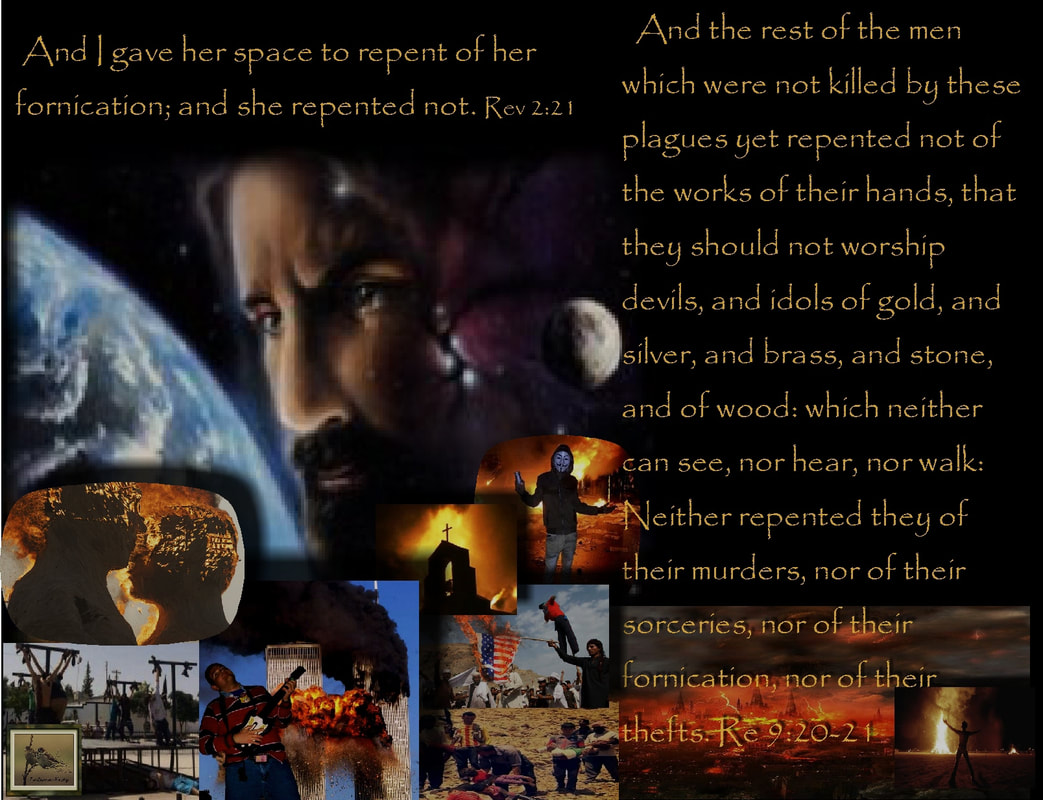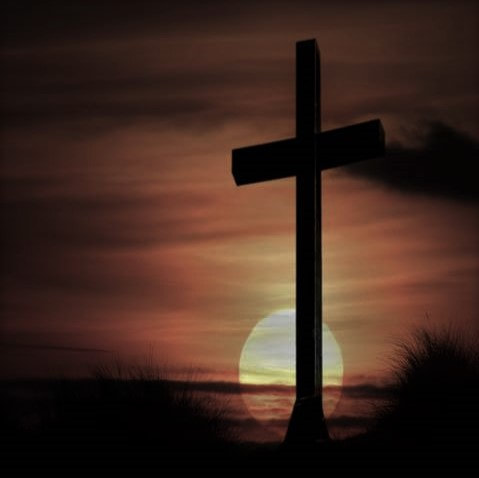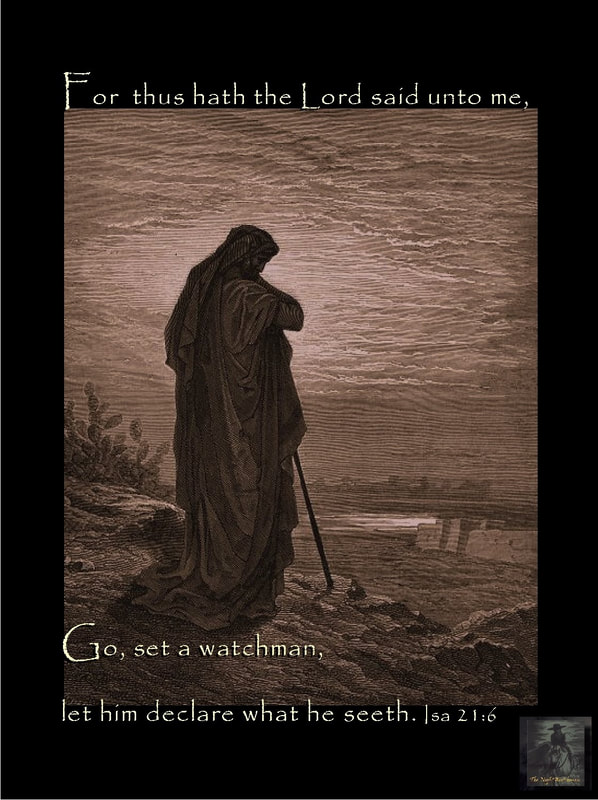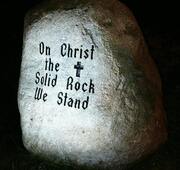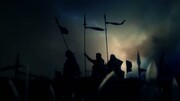|
Ezra chapter nine, it tells of his remorse and prayer of grief over the realization that Gods people had fallen into great sin, and they were living out the consequences. I encourage reading the entire chapter verses 1 through 15. Below is commentary, giving greater clarity. Ezra's repentant prayer-is the state Christians should be in today, because we are in the same situation now in this country-but I'm not seeing it. I see a nation, and a world, that Revelation describes-"they would not repent." Rev. 2:21, 9:20-21
Ezr 9:9 For we were bondmen; yet our God hath not forsaken us in our bondage, but hath extended mercy unto us in the sight of the kings of Persia, to give us a reviving, to set up the house of our God, and to repair the desolations thereof, and to give us a wall in Judah and in Jerusalem. Ezr 9:10 And now, O our God, what shall we say after this? for we have forsaken thy commandments, "I fell upon my knees, and spread out my hands unto the Lord my God — The burden of his prayer, which was dictated by a deep sense of the emergency, was that he was overwhelmed at the flagrant enormity of this sin, and the bold impiety of continuing in it after having, as a people, so recently experienced the heavy marks of the divine displeasure. God had begun to show returning favor to Israel by the restoration of some. But this only aggravated their sin, that, so soon after their re-establishment in their native land, they openly violated the express and repeated precepts which commanded them to extirpate the Canaanites. Such conduct, he exclaimed, could issue only in drawing down some great punishment from offended Heaven and ensuring the destruction of the small remnant of us that is left, unless, by the help of divine grace, we repent and bring forth the fruits of repentance in an immediate and thorough reformation." JFB comm. Ezra 9:1-15 A LEADER’S SORROWS FOR HIS PEOPLE’S SINS "The mingling of the holy seed with heathen peoples was always the curse of Israel, and it has been the temptation of God’s children in every age. Do we sufficiently tremble at the words of the God of Israel because of our sins or those of others? The humiliation and anguish of soul experienced by Ezra and his associates are a great rebuke to us. We are indignant, but we do not view sin from God’s standpoint. Notice the humility of his prayer, I blush to lift up my face; its vicarious confession of sin; its acknowledgment of God’s grace in giving a little reviving; its recital of the aggravation which had dyed their sin of a deeper hue. Israel was intended to live in Canaan as a separated people. The land itself could not yield its good, or remain their permanent inheritance on condition of their fidelity to God. When confession of sin has been made, let us stand before God claiming forgiveness, acceptance, and cleansing, through the precious blood of Christ, 1Jn_1:7." F.B Meyer comm. From the Expositor's Bible: "Ezra was amazed, appalled. In the dramatic style which is quite natural to an Oriental, he rent both his tunic and his outer mantle, and he tore his hair and his long priestly beard. This expressed more than the grief of mourning which is shown by tearing one garment and cutting the hair. Like the high-priest when he ostentatiously rent his clothes at what he wished to be regarded as blasphemy in the words of Jesus, Ezra showed indignation and rage by his violent action. It was a sign of his startled and horrified emotions, but no doubt it was also intended to produce an impression on the people who gathered in awe to watch the great ambassador, as he sat amazed and silent on the temple pavement through the long hours of the autumn afternoon. The grounds of Ezra’s grief and anger may be learnt from the remarkable prayer which he poured out when the stir occasioned by the preparation of the vesper ceremonies roused him, and when the ascending smoke of the evening sacrifice would naturally suggest to him an occasion for drawing near to God. Welling up, hot and passionate, his prayer is a revelation of the very heart of the scribe. Ezra shows us what true prayer is-that it is laying bare the heart and soul in the presence of God. The striking characteristic of this outburst of Ezra’s is that it does not contain a single petition. There is no greater mistake in regard to prayer than the notion that it is nothing more than the begging of specific favours from the bounty of the Almighty. That is but a shallow kind of prayer at best. In the deepest and most real prayer the soul is too near to God to ask for any definite thing; it is just unbosoming itself to the Great Confidant, just telling out its agony to the Father who can understand everything and receive the whole burden of the anguished spirit. Considering this prayer more in detail, we may notice, in the first place, that Ezra comes out as a true priest, not indeed officiating at the altar with ceremonial sacrifices, but identifying himself with the people he represents, so that he takes to his own breast the shame of what he regards as the sin of his people. Prostrate with self-humiliation, he cries, "O my God, I am ashamed and blush to lift up my face to Thee, my God," and (Ezr_9:6) he speaks of the sins which have just been made known to him as though he had a share in them, calling them "our iniquities" and "our trespass." (Ezr_9:6) Have we not here a glimpse into that mystery of vicarious sin-bearing which is consummated in the great intercession and sacrifice of our Lord? Though himself a sinful man, and therefore at heart sharing the guilt of his people by personal participation in it, as the holy Jesus could not do, still in regard to the particular offence which he is now deploring. Ezra is as innocent as an unfallen angel. Yet he blushes for shame, and lies prostrate with confusion of face. He is such a true patriot that he completely identifies himself with his people. But in proportion as such an identification is felt, there must be an involuntary sense of the sharing of guilt. It is vain to call it an illusion of the imagination. Before the bar of strict justice Ezra was as innocent of this one sin, as before the same bar Christ was innocent of all sin. God could not really disapprove of him for it, any more than He could look with disfavour on the great Sin-bearer. But subjectively, in his own experience, Ezra did not feel less poignant pangs of remorse than he would have felt if he had been himself personally guilty. This perfect sympathy of true priesthood is rarely experienced, but since Christians are called to be priests, to make intercession, and to bear one another’s burdens, something approaching it must be shared by all the followers of Christ; they who would go forth as saviours of their brethren must feel it acutely. The sin-bearing sacrifice of Christ stands alone in its perfect efficacy, and many mysteries crowd about it that cannot be explained by any human analogies. Still, here and there we come across faint likenesses in the higher experiences of the better men, enough to suggest that our Lord’s passion was not a prodigy, that it was really in harmony with the laws by which God governs the moral universe. In thus confessing the sin of the people before God, but in language which the people who shared with him a reverence for The Law could hear, no doubt Ezra hoped to move them also to share in his feelings of shame and abhorrence for the practices he was deploring. He came dangerously near to the fatal mistake of preaching through a prayer, by "praying at" the congregation. He was evidently too deeply moved to be guilty of an insincerity, a piece of profanity, at which every devout soul must revolt. Nevertheless the very exercise of public prayer-prayer uttered audibly, and conducted by the leader of a congregation-means that this is to be an inducement for the people to join in the worship. The officiating minister is not merely to pray before the congregation, while the people kneel as silent auditors. His prayer is designed to guide and help their prayers, so that there may be "common prayer" throughout the whole assembly. In this way it may be possible for him to influence men and women by praying with them, as he can never do by directly preaching to them. The essential point is that the prayer must first of all be real on the part of the leader-that he must be truly addressing God, and then that his intention with regard to the people must be not to exhort them through his prayer, but simply to induce them to join him in it. Let us now inquire what was the nature of the sin which so grievously distressed Ezra, and which he regarded as so heavy a slur on the character of his people in the sight of God. On the surface of it, there was just a question of policy. Some have argued that the party of rigour was mistaken, that its course was suicidal, that the only way of preserving the little colony was by means of well-adjusted alliances with its neighbours-a low view of the question which Ezra would not have glanced at for a moment, because with his supreme faith in God no consideration of worldly expediency or political diplomacy could be allowed to deflect him from the path indicated, as he thought, by the Divine will. But a higher line of opposition has been taken. It has been said that Ezra was illiberal, uncharitable, culpably narrow, and heartlessly harsh. That the man who could pour forth such a prayer as this, every sentence of which throbs with emotion, every word of which tingles with intense feeling-that this man was heartless cannot be believed. Still it may be urged that Ezra took a very different view from that suggested by the genial outlook across the nations which we meet in Isaiah. The lovely idyll of Ruth defends the course he condemned so unsparingly. The Book of Jonah was written directly in rebuke of one form of Jewish exclusiveness. Ezra was going even further than the Book of Deuteronomy, which had allowed marriages with the heathen, (Deu_21:13) and (Deu_23:1-8) It cannot be maintained that all the races named by Ezra were excluded. Could it be just to condemn the Jews for not having followed the later and more exacting edition of The Law, which Ezra had only just brought up with him, and which had not been known by the offenders? In trying to answer these questions, we must start from one clear fact. Ezra is not merely guided by a certain view of policy. He may be mistaken, but he is deeply conscientious, his motive is intensely religious. Whether rightly or wrongly, he is quite persuaded that the social condition at which he is so grievously shocked is directly opposed to the known will of God. "We have forsaken Thy commandments," he exclaims. But what commandments, we may ask, seeing that the people of Jerusalem did not possess a law that went so far as Ezra was requiring of them? His own language here comes in most appositely. Ezra does not appeal to Deuteronomy, though he may have had a passage from that book in mind, (Deu_7:3) neither does he produce the Law Book which he has brought up with him from Babylon and to which reference is made in our version of the decree of Artaxerxes: (Ezr_7:14) but he turns to the prophets, not with reference to any of their specific utterances, but in the most general way, implying that his view is derived from the broad stream of prophecy in its whole course and character. In his prayer he describes the broken commandments as "those which Thou hast commanded by Thy servants the prophets." This is the more remarkable because the prophets did not favour the scrupulous observance of external rules, but dwelt on great principles of righteousness. Some of them took the liberal side, and expressed decidedly cosmopolitan ideas in regard to foreign nations, as Ezra must have been aware. He may have mentally anticipated the excuses which would be urged in reliance on isolated utterances of this character. Still, on a survey of the whole course of prophecy, he is persuaded that it is opposed to the practices which he condemns. He throws his conclusion into a definite sentence, after the manner of a verbal quotation, (Ezr_9:11) but this is only in accordance with the vivid, dramatic style of Semitic literature, and what he really means is that the spirit of his national prophecy and the principles laid down by the recognised prophets support him in the position which he has taken up. These prophets fought against all corrupt practices, and in particular they waged ceaseless war with the introduction of heathenish manners to the religious and social life of Israel. It is here that Ezra finds them to be powerful allies in his stern reformation. They furnish him, so to speak, with his major premiss, and that is indisputable. His weak place is in his minor premiss, viz., in the notion that intermarriage with Gentile neighbours necessarily involves the introduction of corrupt heathenish habits. This he quietly assumes. But there is much to be said for his position, especially when we note that he is not now concerned with the Samaritans, with whom the temple-builders came into contact and who accepted some measure of the Jewish faith, but in some cases with known idolaters-the Egyptians, for instance. The complex social and moral problems which surround the quarrel on which Ezra here embarks will come before us more fully as we proceed. At present it may suffice for us to see that Ezra rests his action on his conception of the main characteristics of the teaching of the prophets. Further, his reading of history comes to his aid. He perceives that it was the adoption of heathenish practices that necessitated the severe chastisement of the captivity. God had only spared a small remnant of the guilty people. But He had been very gracious to that remnant, giving them "a nail in His holy place"; (Ezr_9:8) i.e., a fixture in the restored sanctuary, though as yet, as it were, but at one small point, because so few had returned to enjoy the privileges of the sacred temple worship. Now even this nail might be drawn. Will the escaped remnant be so foolish as to imitate the sins of their forefathers, and risk the slight hold which they have as yet obtained in the renewed centre of Divine favour? So to repudiate the lessons of the captivity, which should have been branded irrevocably by the hot irons of its cruel hardships, what was this but a sign of the most desperate depravity? Ezra could see no hope even of a remnant escaping from the wrath which would consume the people who were guilty of such wilful, such open-eyed apostasy. In the concluding sentences of his prayer Ezra appeals to the righteousness of God, who had permitted the remnant to escape at the time of the Babylonian Captivity, saying, "O Lord, the God of Israel, Thou art righteous, for we are left a remnant that is escaped, as it is this day." (Ezr_9:15) Some have supposed that God’s righteousness here stands for His goodness, and that Ezra really means the mercy which spared the remnant. But this interpretation is contrary to usage, and quite opposed to the spirit of the prayer. Ezra has referred to the mercy of God earlier, but in his final sentences he has another thought in mind. The prayer ends in gloom and despondency-"behold, we are before Thee in our guiltiness, for none can stand before Thee because of this." (Ezr_9:15) The righteousness of God, then, is seen in the fact that only a remnant was spared. Ezra does not plead for the pardon of the guilty people, as Moses did in his famous prayer of intercession. (Exo_32:31-32) As yet they are not conscious of their sin. To forgive them before they have owned their guilt would be immoral. The first condition of pardon is confession. "If we confess our sins, He is faithful and righteous to forgive us our sins, and to cleanse us from all unrighteousness." (1Jn_1:9) Then, indeed, the very righteousness of God favours the pardon of the stoner. But till this state of contrition is reached, not only can there be no thought of forgiveness, but the sternest, darkest thoughts of sin are most right and fitting. Ezra is far too much in earnest simply to wish to help his people to escape from the consequences of their conduct. This would not be salvation. It would be moral shipwreck. The great need is to be saved from the evil conduct itself. It is to this end that the very passion of his soul is directed. Here we perceive the spirit of the true reformer. But the evangelist cannot afford to dispense with something of the same spirit, although he can add the gracious encouragements of a gospel, for the only true gospel promises deliverance from sin itself in the first instance as from the greatest of all evils, and deliverance from no other evil except on condition of freedom from this." Reading this account, along with the lament's of Jeremiah, it gives a comparative picture of the condition of this world today-ready for judgment. We will not repent of our fornication's, abominations, our murders, thefts, drug addictions, violence, hatred, and our mixture of pagan religions that has infiltrated into Christianity. The pot of iniquity is boiling over. Lorna Couillard Comments are closed.
|
Welcome
God's blessings You may find useful information here; Go to the resource page, you will find many videos and links The NightWatchman
No weapon that is formed against thee shall prosper; and every tongue that shall rise against thee in judgment thou shalt condemn. This is the heritage of the servants of the LORD, and their righteousness is of me,
saith the LORD. Isa 54:17 Rev 12:11
And they overcame him by the blood of the Lamb, and by the word of their testimony; and they loved not their lives unto the death. The Victory of Our Faith
For whatsoever
is born of God overcometh the world: and this is the victory that overcometh the world, even our faith. Who is he that overcometh the world, but he that believeth that Jesus is the Son of God? 1Jn 5:4-5 But they that wait
upon the LORD shall renew their strength; they shall mount up with wings as eagles; they shall run, and not be weary; and they shall walk, and not faint. Isa 40:31 Our Warfare
For though we walk in the flesh, we do not war after the flesh: (For the weapons of our warfare are not carnal, but mighty through God to the pulling down of strong holds;) Casting down imaginations, and every high thing that exalteth itself against the knowledge of God, and bringing into captivity every thought to the obedience of Christ; 2Cor 10:3-5 The Whole Armor
of God Finally, my brethren, be strong in the Lord, and in the power of his might. Put on the whole armour of God, that ye may be able to stand against the wiles of the devil. For we wrestle not against flesh and blood, but against principalities, against powers, against the rulers of the darkness of this world, against spiritual wickedness in high places. Wherefore take unto you the whole armour of God, that ye may be able to withstand in the evil day, and having done all, to stand. Stand therefore, having your loins girt about with truth, and having on the breastplate of righteousness; And your feet shod with the preparation of the gospel of peace; Above all, taking the shield of faith, wherewith ye shall be able to quench all the fiery darts of the wicked. And take the helmet of salvation, and the sword of the Spirit, which is the word of God: Praying always with all prayer and supplication in the Spirit, and watching thereunto with all perseverance and supplication for all saints; Eph 6:10-18 The Prayer Room
Archives
July 2024
|
Proudly powered by Weebly

